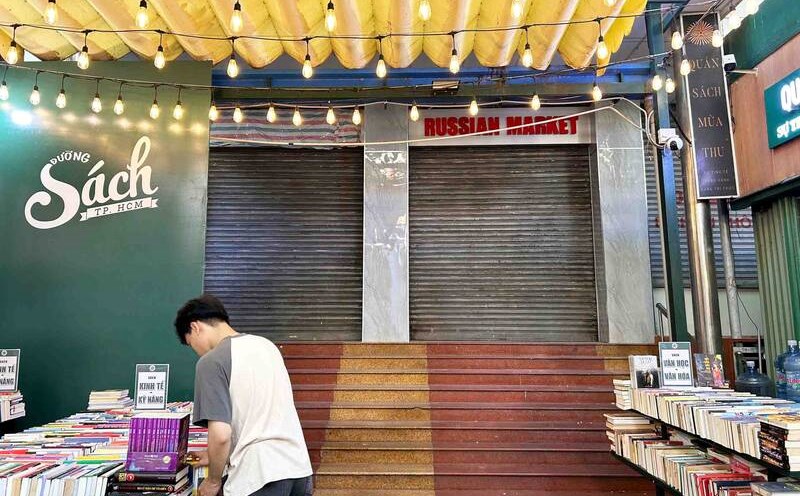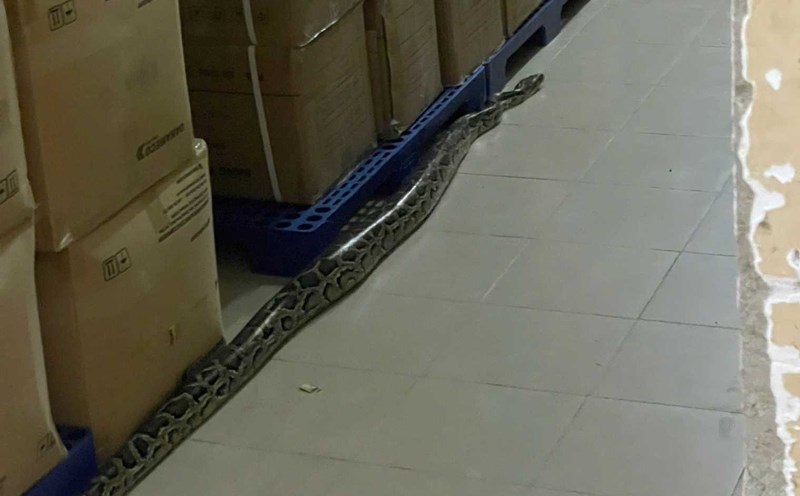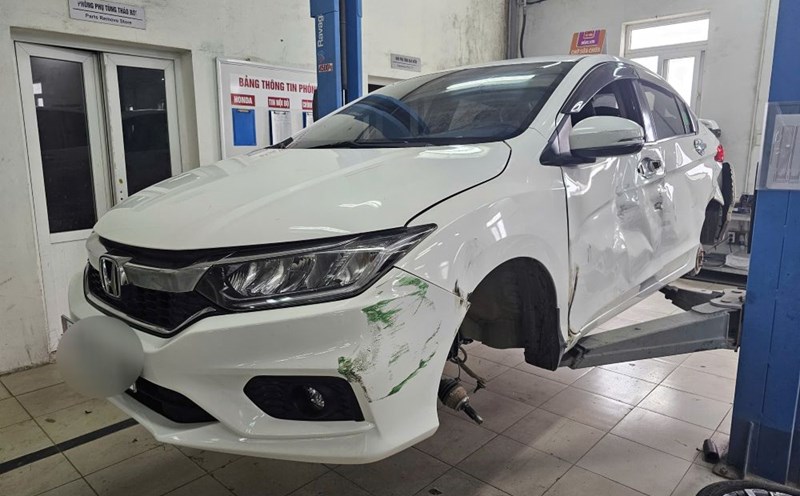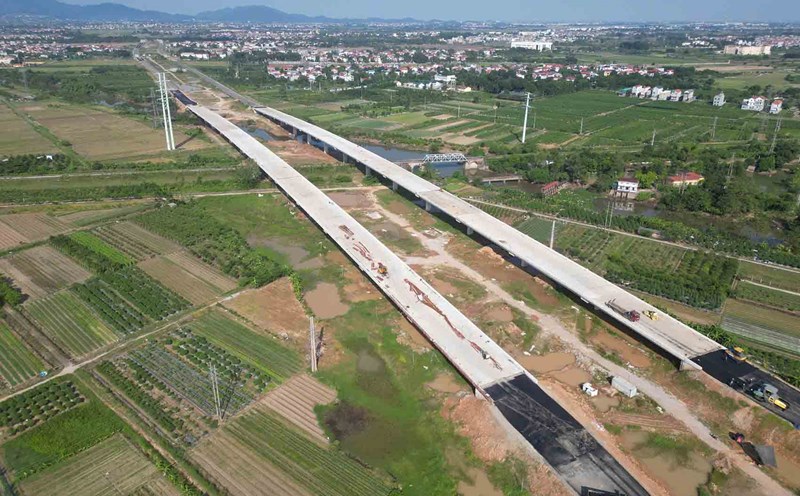Attending were Ms. Ho Thi Cam Dao - Deputy Secretary of the City Party Committee, Chairman of the Vietnam Fatherland Front Committee of Can Tho City and Mr. Vuong Quoc Nam - Vice Chairman of the People's Committee of Can Tho City.
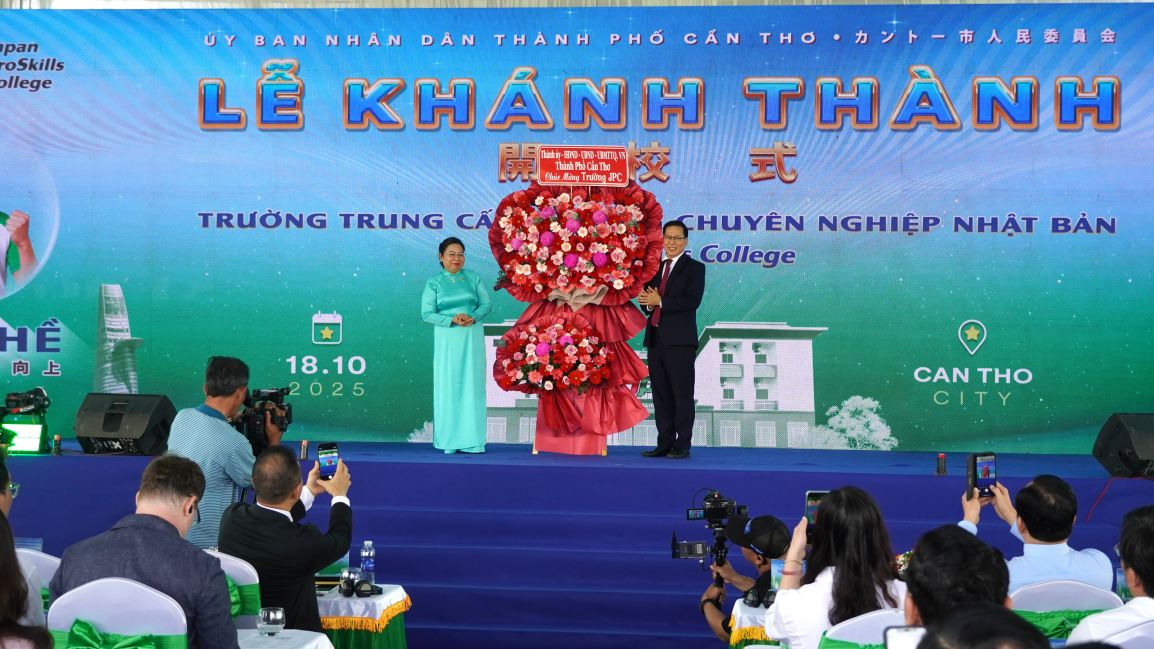
Speaking at the ceremony, Mr. Nguyen Xuan Lanh - Deputy General Director of Esuhai Group, Principal of JPC School said that this is the first unit in the Mekong Delta to invest in a vocational training model directly linked to recruitment from Japanese enterprises. The school was formed on the basis of the Cooperation Minutes signed in 2023 between Esuhai Company and the People's Committee of Soc Trang province, now Can Tho city. With 3 key contents: training and sending human resources to Japan; connecting cooperation between localities and Japanese enterprises; building vocational schools that meet Japanese standards.
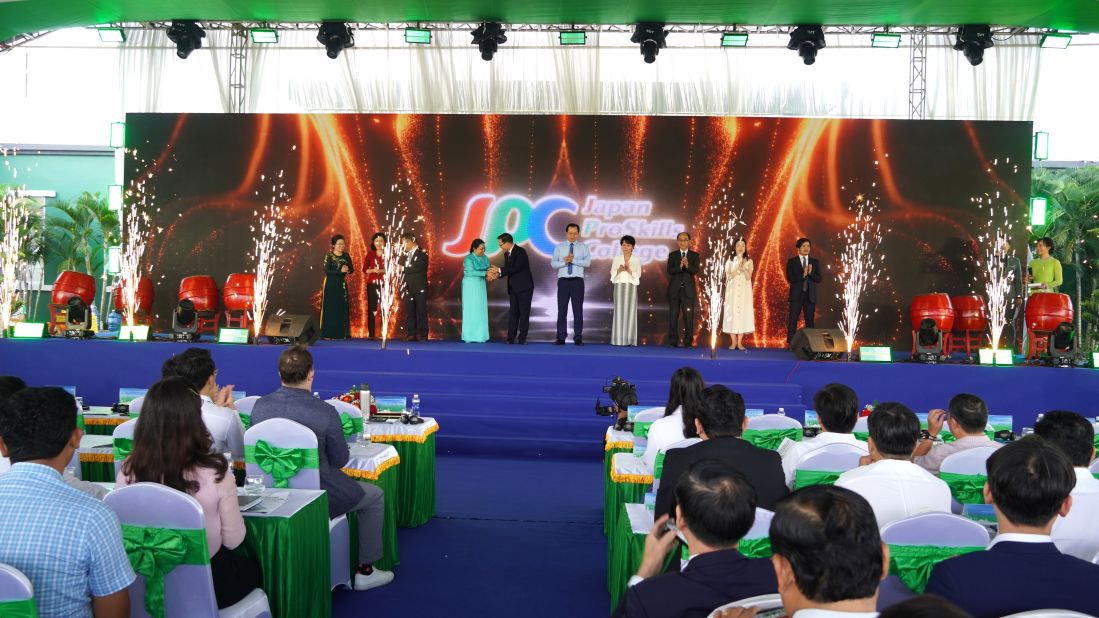
The highlight of JPC is the closely interconnected training program between learning and practice. Students are trained in vocational skills according to Japanese standards, learn specialized Japanese, practice working skills in a Japanese business environment and practice physical exercise according to international standards. After studying domestically, students are given a specialized internship in Japan and are committed to a job with an income of 30 - 35 million VND/month. After completing the program, students can extend their working in Japan by 2.5 - 5 years, accumulate experience and living capital before returning to contribute to their homeland.
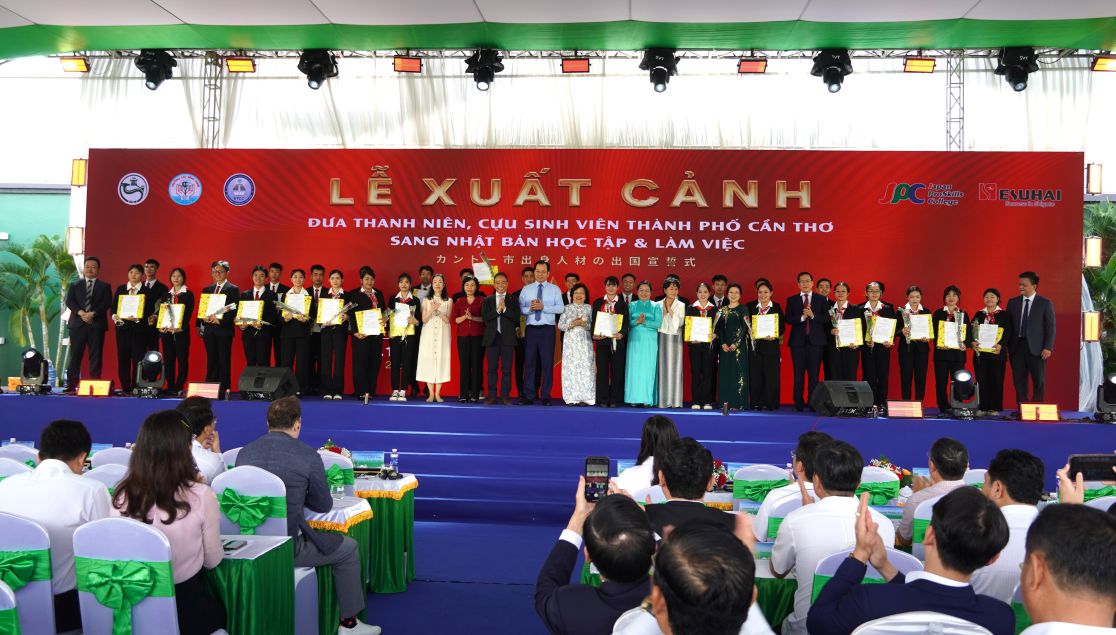
Speaking at the ceremony, Vice Chairman of Can Tho City People's Committee Vuong Quoc Nam highly appreciated the effectiveness of cooperation between the locality and Esuhai Group in the past 2 years. According to Mr. Nam, up to now, JPC has trained 435 students, of which 158 have graduated and went to Japan to work with an average income of 30 million VND/month. He said that this is an appreciated result, demonstrating the right direction in training associated with employment, contributing to reducing unemployment and improving the quality of local human resources.
Mr. Nam suggested that Esuhai and JPC continue to invest, expand the scale and improve the quality of training; gradually upgrade the school to a high-quality Japanese-standard college; expand enrollment throughout Can Tho city and neighboring provinces, strive to reach 2,000 - 3,000 students per year, meet the needs of high-quality human resources, promote socio-economic development of Can Tho city and the Mekong Delta region.
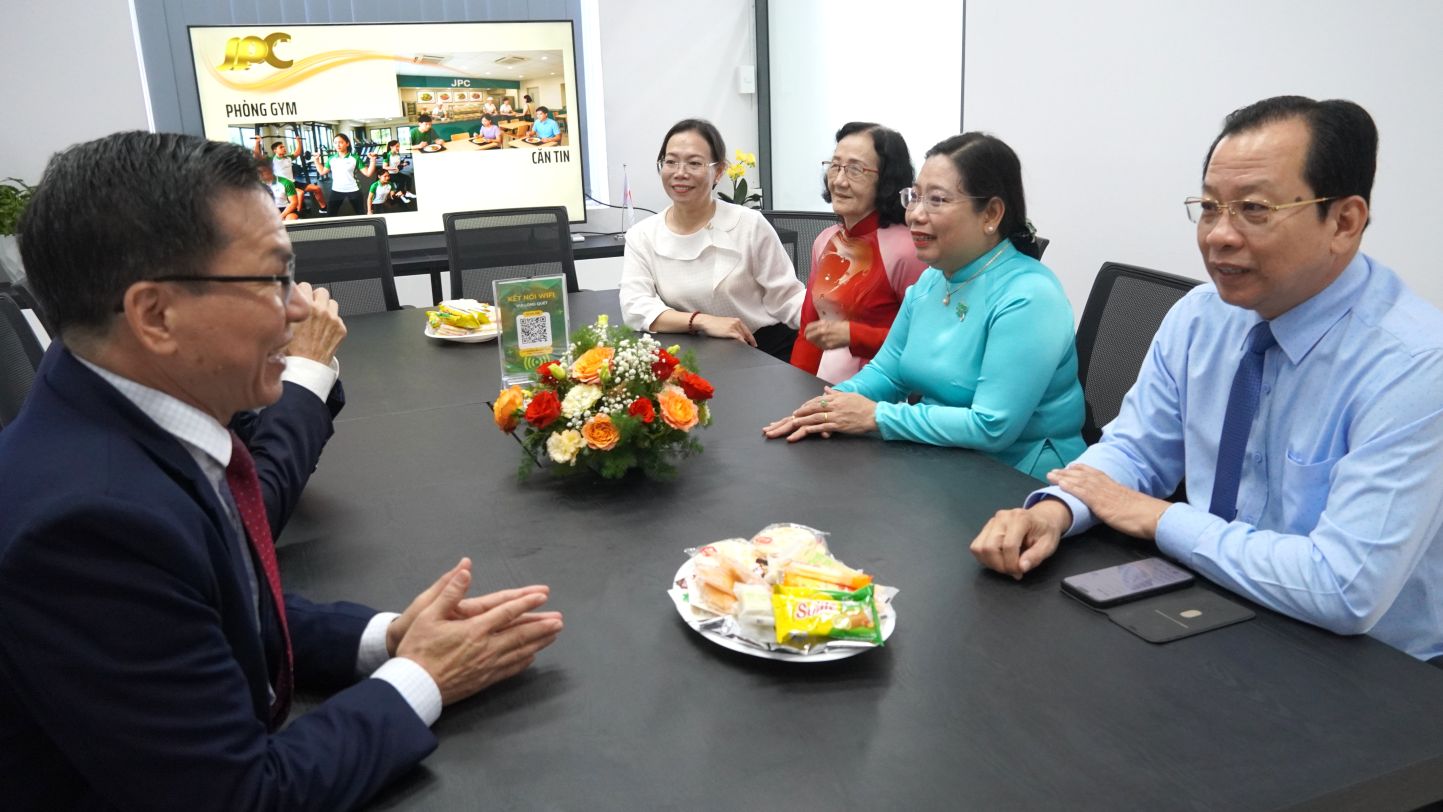
On this occasion, JPC School also held an exit ceremony for 31 first-time students to study and work in Japan.




